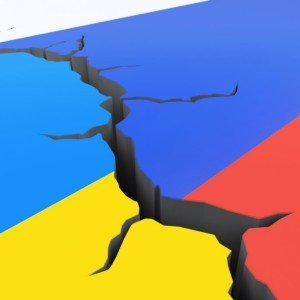 According to the data of sociologists, the attitude of Ukrainians towards Russians and vice versa deteriorated in these latter days. The results of the common project of the Kyiv International Institute of Sociology and the Russian non-governmental research organization “Levada-Center” confirm this fact.
According to the data of sociologists, the attitude of Ukrainians towards Russians and vice versa deteriorated in these latter days. The results of the common project of the Kyiv International Institute of Sociology and the Russian non-governmental research organization “Levada-Center” confirm this fact.
According to the poll’s data, the attitude of Ukrainians towards Russia and Russians to Ukraine became more negative within the last three months. However, the attitude of Ukrainians to Russia still remains more positive than the attitude of Russians to Ukraine.
The number of positive-minded towards Russia Ukrainians reaches 37% (in September this rate was 48%). Part of negative-minded towards Russia Ukrainians reaches almost 50% (48%).
The number of those, who want the border closure with Russia, reached 50%. Analogic tendency is observed in the Russian Federation – 32% of respondents would like to close the border with Ukraine (they were 26% in September).
Answering the question about what kind of relationships Ukrainians want with Russia, 92% of the respondents asserted that Ukraine has to keep its independent status, the number of adherents of the joint state with the Russian Federation reached 3%. At the same time, 52% of Russians see relationships with Ukraine without borders, visas and custom offices, but 33% believe that it’s time to close the border.
The number of Russians, who completely support the accession of Crimea to Russia, reduced from 57% (in March) to 50% (in January).
Note: On the territory of Ukraine the public opinion poll has been held within December 6 – 17, 2014. There are 2011 respondents aged 18 and older from all the regions of Ukraine, except the Autonomous Republic of Crimea, who have been questioned using the interview method. In the Lugansk region the poll has been held only on the territory controlled by Ukraine, in the Donetsk region the poll has been held on the territories that are and are not controlled by Ukraine. Levada-Center took the opinion poll using method of the efficient sample for Russia within January 23 – 26, 2015; 1600 respondents aged 18 and older from 130 populated localities in 45 regions of the country were interviewed. The statistical error of the data does not exceed 3.4%.












